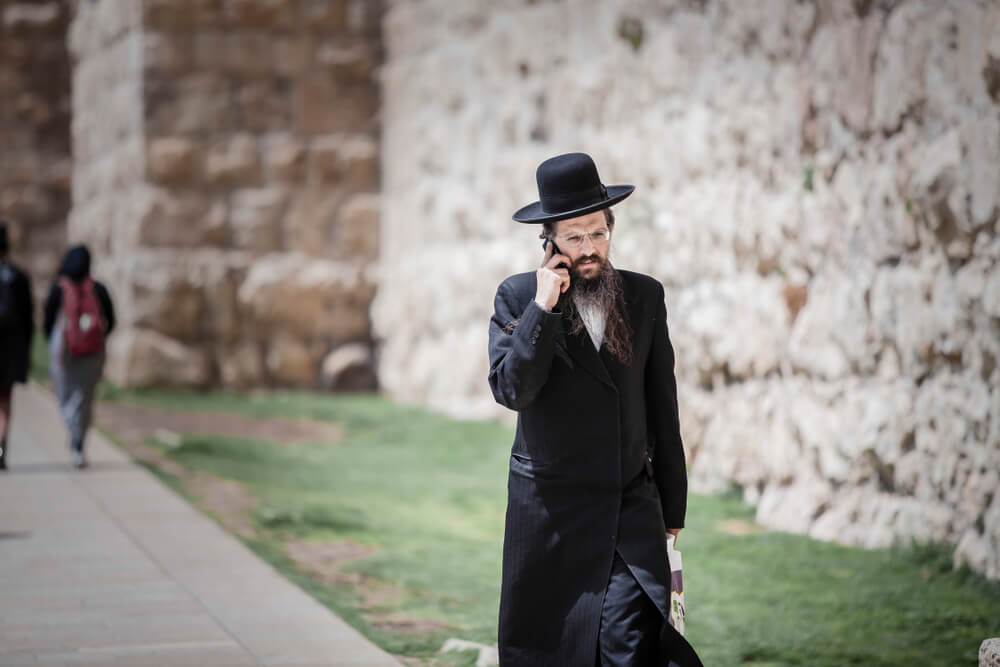When you are planning a bris for your baby boy, you might wonder whether you should invite friends and family to the event or just let them know the time and date of the ceremony. Have you ever wondered why this is? Why not make a bris invitation? Let’s find out the ins and outs of this ceremony and learn about your options concerning South Florida religious circumcision.
Also, feel free to contact us afterward if you’re looking for excellent brit milah gift ideas.
Bris Invitation Facts and Misconceptions
Generally, the misconception is that parents of the newborn son will send out a brit milah invitation to friends and family to join them in the celebration, similarly to weddings and bar mitzvahs. However, the truth is that there is an old custom not to invite people to the ceremony. Instead, parents make a bris announcement and let friends and family know about the place and time of the brit milah.
Why is this?
Religious/Historical Background
There’s a long tradition of hosting festive meals following a brit milah or bris. During this feast, which is considered a seudat mitzvah, usually, the ceremony will also include a minyan.
According to the Cochmat Adam, Vilna Gaon would express sharp disapproval of those who have the means but still choose not to create a respectable meal. Additionally, other sources and great teachers insist that following the brit milah, the festive feast should include meat, participants should also drink wine at the meal as it is a seduat mitzvah.
Even though the opinion on sending out a bris invitation to friends and family is more or less set, the topic of the meal following the brit milah can be a bit confusing. Rabbi Isaac Zekel Etthausen was quoted several times saying that a timely appropriate bris is an actual Biblical obligation. On the other hand, the Beit Yaakov movement states that there’s no obligation of biblical nature.
Bris Invitation – Yes or No?

The nature of the bris and the accompanying meal is differently interpreted across the Jewish community. There’s also a debate on whether you should send out a bris invitation to those who you’d want to see during the ceremony.
Because some see a bris as a mitzvah, you should just inform them. Others mention that refusing to show up at the ceremony following the invitation could lead to “excommunication from Heaven,” and you steer clear of sending out invitations to avoid putting your guest and friends from potentially refusing or missing out because they couldn’t make it.
No Bris Invitation Whatsoever?
Even if you don’t invite anyone to the big event, you will still need at least a handful of people to help you out with the ceremony. Without technically sending out a single brit milah invitation, you will still need to ask the Sandek for help. This is the role of a ceremonial figure responsible for holding the baby’s legs during the bris. Traditionally, grandfathers play this role, so make sure to ask around your community if you have somebody else in mind.
Furthermore, there are more ceremonial roles you will have to think about and find somebody to fulfill. For starters, you also have the Kvater, the male person responsible for carrying the newborn baby to the Sandek. You can also choose a Kvaterin, a female person whose job is to give the Kvater the baby.
After finding the people who will fill these roles, you can pretty much make the bris announcement. Whether you want to go forward with sending out brit milah invitations is more or less up to you. Your best bet will still be to ask around your community to make sure there won’t be any problems if you happen to invite someone.
And even then, there are a few things you will need to handle prior to the ceremony.
Things to Know During Brit Milah
Without sending even a single brit milah invitation out, you can be pretty sure that your closest family members will most probably show up. They will be more than happy to welcome your son to the Jewish community and will probably want to be there to take part in this important event.
Close friends are another group of people who are likely to attend the ceremony. This is a bit trickier, and you might need to take care of a few things beforehand. For those who follow the Jewish faith, it’s only normal to turn and then face the opposite direction when the mohel starts unpacking his tools. So, if you are also expecting non-Jewish people during the ceremony, your best bet is to inform them about what will happen, what they should expect, and how they should act.
On that end, it’s completely okay to expect non-Jewish people at the ceremony following a bris announcement, even though they won’t be counted for the minyan.
If coworkers from the office also stated that they’d wish to attend (even though they were given no bris invitation), let them know about the traditions too and let them know that your child will be in pain during the actual ceremony, so they may leave it out if they’d make them feel offended or uncomfortable.
Bris Invitation Traditions

Both Ashkenazi and Sephardic Jewish cultures avoided directly inviting their guests to a brit milah meal for several centuries. Even then, it’s not necessarily prohibited to invite them to the actual brit. As a matter of fact, it may even cause problems if you make a general announcement as some guests might misinterpret it and think that their presence isn’t actually desired.
So, if you want to invite family and friends, it’s best to do it directly.
Lastly, you should also know that attending the ceremony is considered laudable, but in some circumstances, invited guests can skip the simchah. For example, engaging in another mitzvah, learning the Torah, or earning a living are all activities that can excuse the guest from attending.
Also, the ceremony itself shouldn’t feel like a burden to your guests. It should serve as a splendid opportunity for your family and friends to welcome the newest member to the Jewish community.
Prepare for the Event Properly
Whether you are sending out invites or not, never forget that your child is at the focal point of the ceremony, and he will be taking center stage. It’s his introduction to the Jewish covenant, and you will want to make sure that everything goes smoothly during the procedure. Circumcision is the sacred process that binds boys of the Jewish faith to past and future generations.
On the other hand, if you have any further concerns or questions regarding circumcision, don’t hesitate to ask us for advice.
We have helped countless couples with the matter, and you can rest assured that we will be more than happy to answer them all.







